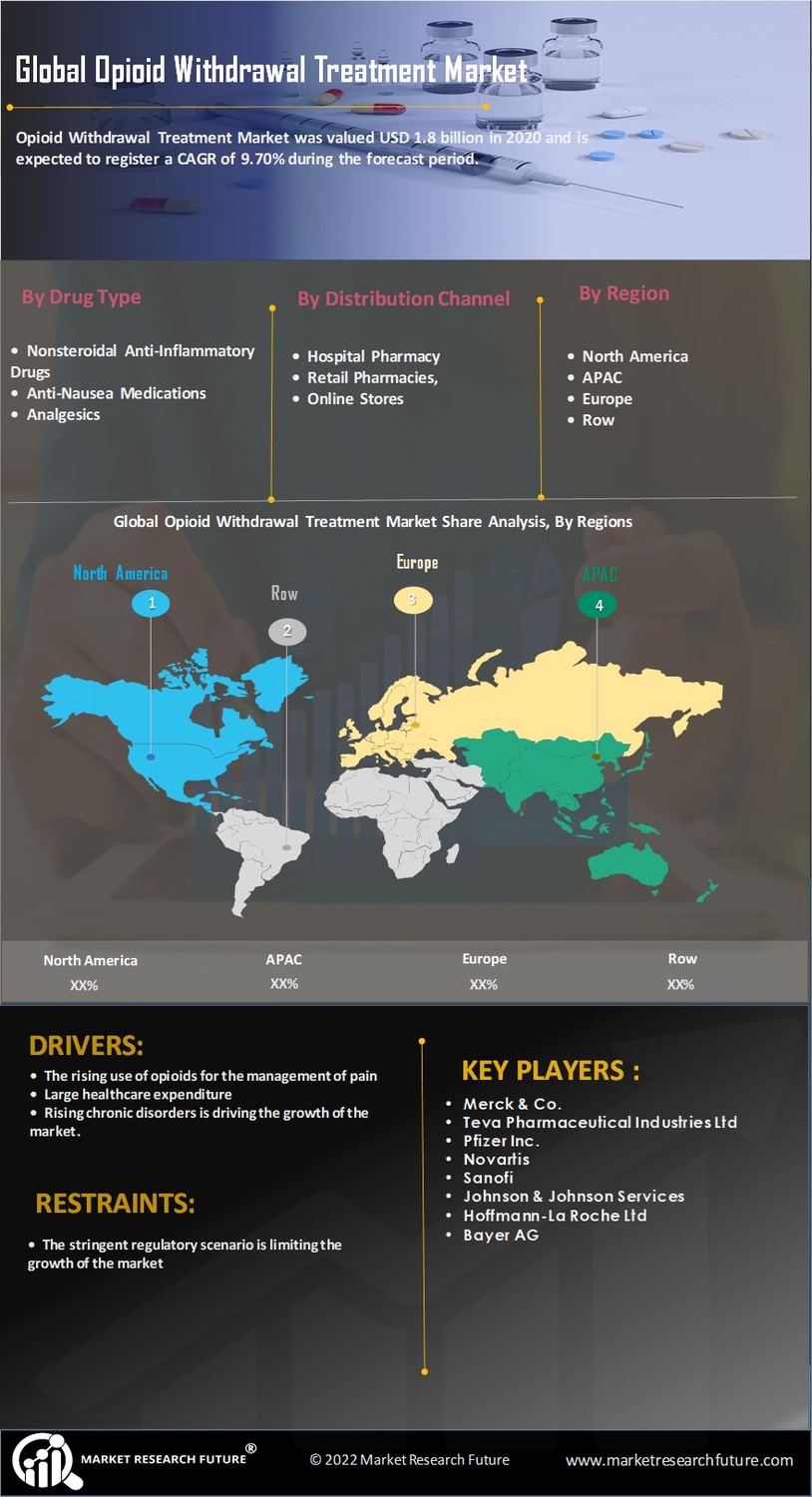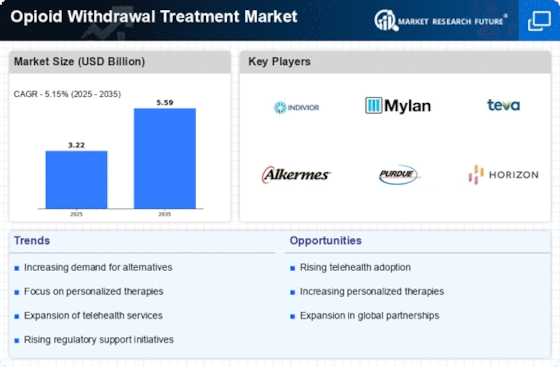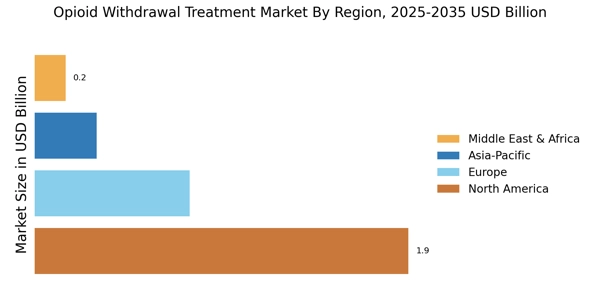Government Initiatives and Funding
Government initiatives aimed at combating the opioid crisis significantly influence the Opioid Withdrawal Treatment Market. Various countries have implemented policies to enhance access to treatment and support services for individuals struggling with opioid addiction. Increased funding for research and development of new treatment options is also evident, as governments recognize the urgent need to address this public health emergency. For instance, the allocation of resources for training healthcare professionals in addiction treatment is likely to improve the quality of care provided. Consequently, these initiatives are expected to stimulate growth in the Opioid Withdrawal Treatment Market, as they facilitate the development and dissemination of effective treatment solutions.
Innovations in Treatment Modalities
Innovations in treatment modalities are reshaping the Opioid Withdrawal Treatment Market. The development of new pharmacological agents, such as buprenorphine and methadone, has provided effective options for managing withdrawal symptoms. Additionally, advancements in behavioral therapies, including cognitive-behavioral therapy and contingency management, are being integrated into treatment plans. These innovations not only improve patient outcomes but also attract investment from pharmaceutical companies and healthcare providers. As new treatment options emerge, the Opioid Withdrawal Treatment Market is likely to expand, driven by the demand for more effective and comprehensive approaches to opioid withdrawal management.
Increased Public Awareness and Education
Increased public awareness and education regarding opioid addiction and withdrawal are pivotal drivers of the Opioid Withdrawal Treatment Market. Campaigns aimed at educating the public about the risks associated with opioid use and the availability of treatment options have led to a greater understanding of addiction as a medical condition. This heightened awareness encourages individuals to seek help and reduces the stigma associated with treatment. As more people become informed about the resources available for opioid withdrawal, the demand for treatment services is expected to rise. Consequently, the Opioid Withdrawal Treatment Market is poised for growth as public education initiatives continue to promote understanding and access to care.
Rising Incidence of Opioid Use Disorders
The increasing prevalence of opioid use disorders is a primary driver of the Opioid Withdrawal Treatment Market. According to the Substance Abuse and Mental Health Services Administration, millions of individuals are affected by opioid addiction, necessitating effective withdrawal treatments. This growing patient population creates a substantial demand for various treatment modalities, including pharmacological and behavioral therapies. As awareness of opioid addiction rises, healthcare providers are more likely to seek innovative solutions to address withdrawal symptoms, thereby propelling market growth. The Opioid Withdrawal Treatment Market is expected to expand as more individuals seek help, and as healthcare systems prioritize addiction treatment as a critical public health issue.
Growing Acceptance of Telehealth Services
The rise of telehealth services has transformed the landscape of the Opioid Withdrawal Treatment Market. With the increasing adoption of digital health technologies, patients can now access treatment remotely, which is particularly beneficial for those in underserved areas. Telehealth offers a convenient and discreet way for individuals to receive support during withdrawal, thereby reducing barriers to treatment. The integration of telehealth into addiction treatment programs is likely to enhance patient engagement and adherence to treatment protocols. As a result, the Opioid Withdrawal Treatment Market may experience accelerated growth, driven by the expanding reach of telehealth services and the increasing demand for accessible treatment options.

















